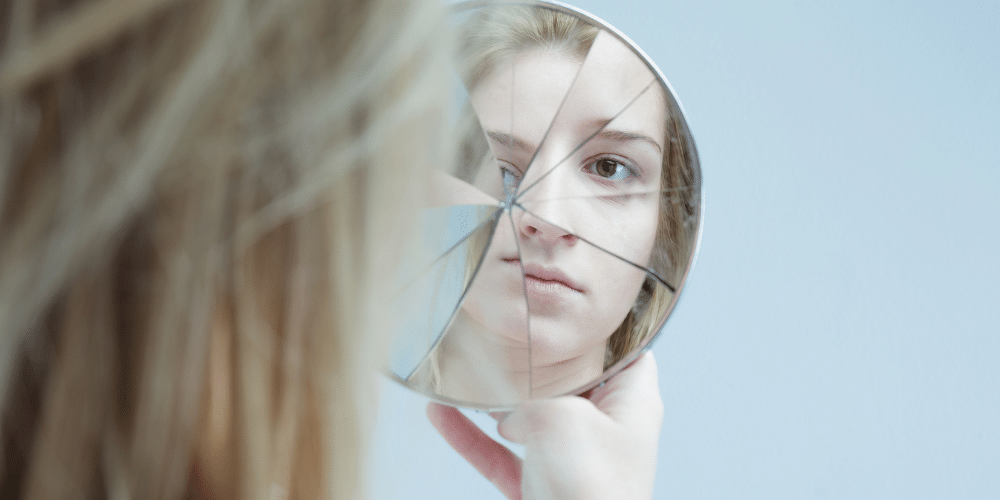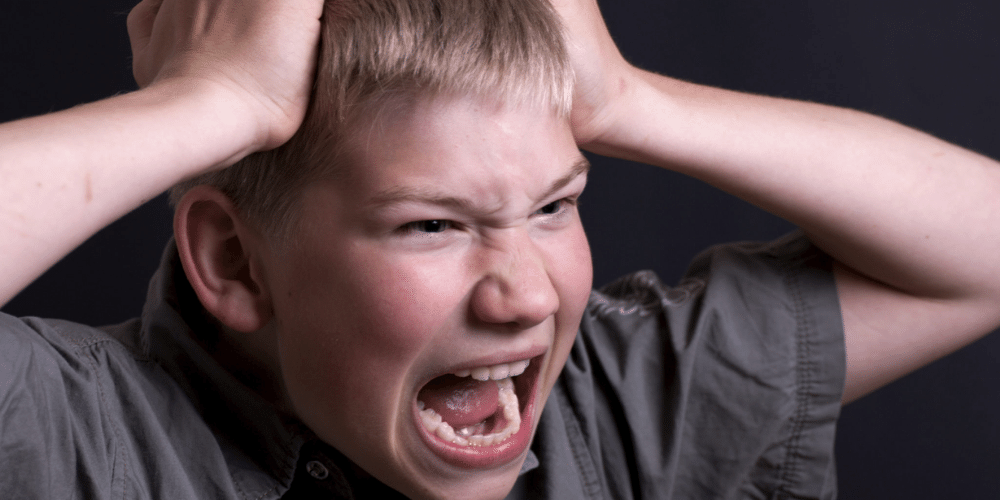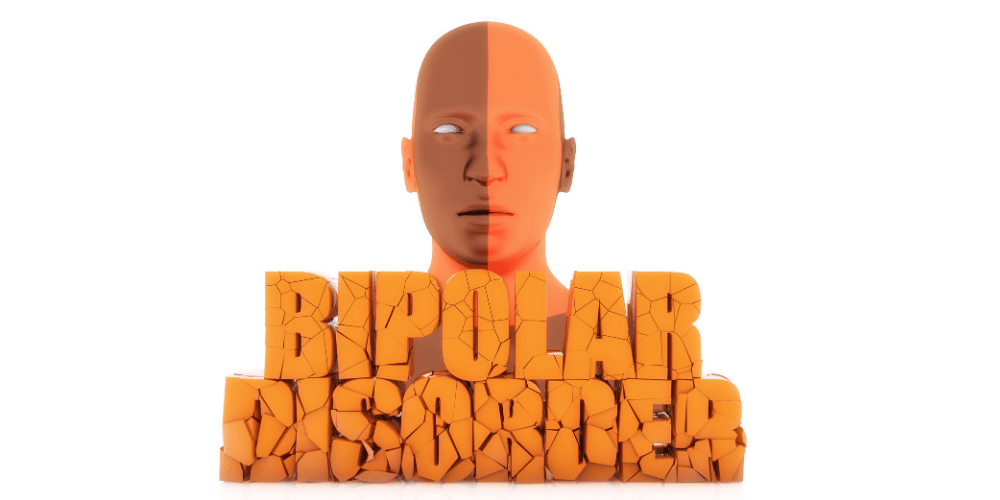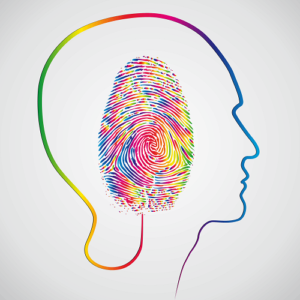Symptoms of Bipolar disorder
There are three major symptoms that can follow along with bipolar disorder: mania, hypomania, and chronic depression.
While experiencing mania, a person with bipolar disorder may feel an emotional high and very excited. They can feel very excited, impetuous, overjoyed, and full of energy. During severe manic episodes, they may also get involved in careless behaviors such as:
Hypomania is usually related to the type II bipolar disorder. It is just like mania, but it’s not as severe. Different from mania, hypomania may not typically result in any kind of trouble at their work place, school, or in social or societal relationships. Though, people that experience hypomania still notice various changes in their mood.
During an episode of depression you may go through:
- deep sadness over a particular event
- feeling of hopelessness
- loss of energy
- lack of interest in certain activities they once usually adored
- periods of little to no sleep or getting too much sleep
- suicidal thoughts that may be very dangerous
Although it’s not a rare condition and many people are found to be diagnosed with it, bipolar disorder can be very hard to identify because of its diverse symptoms.
Bipolar disorder symptoms that women face

Even though men and women are diagnosed with bipolar disorder in equal numbers, the main symptoms that the both genders experience may be quite different. In various cases a woman who is diagnosed with bipolar disorder may:
- be diagnosed later in life and start to show symptoms in their late 20s or 30s
- have trivial episodes of mania
- experience more depressive episodes than those manic episodes
- have four or even more episodes of mania and depression annually, which is known as rapid cycling
- experience various other conditions simultaneously, as well as thyroid disease, obesity, anxiety disorders, and migraines
- have a greater lifetime risk of getting involved in alcohol use disorder
Women who are suffering with bipolar disorder may also relapse more frequently. This is thought to be affected by hormonal changes that are associated with menstruation, pregnancy, or menopause. If you are a woman and are doubtful that you may have bipolar disorder, it’s essential for you to get all the facts straight.
Bipolar disorder symptoms that men go through
Men and women both are likely to experience collective symptoms of bipolar disorder. Nevertheless, men may experience certain symptoms in a different way as compared to women. Men with bipolar disorder possibly will:
- be diagnosed with this condition earlier in life
- experience more severe episodes, particularly manic episodes
- have substance abuse issues and may get involved in it
- may act out for the period of manic episodes
Men with bipolar disorder rarely seek medical care as compared to women on their own. They’re also evidently expected to more likely to die by suicide.
Various types of bipolar disorder
There are three main types that are categorized of bipolar disorder: bipolar I, bipolar II, and cyclothymia.
Bipolar I
Bipolar I is a form of a mental illness and it is also known as manic-depressive disorder. Most people with bipolar I disorder also suffer from episodes of depression and they may experience hypomanic or major depressive episodes before and after the manic episode. Every so often, there is a pattern of cycling amongst mania and depression. This type of bipolar disorder have an emotional impact on both men and women equally.
Bipolar II
Bipolar II is quite similar to Bipolar I. People with this type of bipolar disorder experience one major depressive episode that lasts mainly for two weeks and a particular individual that is diagnosed by bipolar II disorder has had at least one hypomanic episode that is followed in their life.
Most people with bipolar II disorder suffer more frequently from episodes of chronic depression. They similarly have at least one hypomanic episode that continues for a period of four days. This type of bipolar disorder is supposed to be more common in females.
Cyclothymia
People who suffer from cyclothymia have episodes of hypomania and depression. These indications are shorter and less severe than the mania and depression which is caused by bipolar I or bipolar II disorder. Majority of the people who undergo with this condition only experience just a month or two at a time where their moods are stable and steady.
Anyone can develop this disorder and when discussing your diagnosis, your doctor will be able to tell you what type of bipolar disorder you are suffering from.
Bipolar disorder discovered in children
Diagnosing bipolar disorder in children is more likely to be controversial. Bipolar disorder in children can most likely cause mood swings from the highs of hyperactivity or euphoria which is a stage of mania to the lows of severe depression. Young children do not always display similar bipolar symptoms as adults.

Many bipolar disorder symptoms that occur and come about in children also coincide with symptoms from a variety of other such disorders that can happen to children, for instance such as attention deficit hyperactivity disorder (ADHD).
Young children that go through or are in a manic phase might be more short-tempered as compared to adults; they may be more conceivable to have psychotic symptoms, hearing and seeing things that aren’t in actual real. Throughout a depressive episode, they would possibly complain more of physical symptoms, like aches and pains at different parts of their body.
Like adults, children with bipolar disorder go through episodes of elevated high mood swings. They can look as if they are very happy and show indications of impulsive behavior. These periods are later followed by a series of depression. While majority of the children experience mood changes, such changes that are caused by bipolar disorder are very distinct and noticeable. They are also typically reached to a much more extreme than a child’s typical mood swing.
Manic symptoms that children face
Symptoms of a child’s manic episode where a child is hyper and which is caused by bipolar disorder can consist of:
- acting very silly in certain situations and feeling extremely happy
- talking very fast and quickly changing subjects and jumping to one topic to another
- having trouble paying attention or concentrating at school
- Getting involved in risky things or experimenting with dangerous behaviors
- having a very short temper that leads quickly to sudden and extreme outbreaks of anger
- having trouble sleeping properly and not feeling weary or tired after a lot of sleep loss
Depressive symptoms that children go through
Symptoms that a child is going through depressive episode which is caused by bipolar disorder can include:
- moping around, crying or acting very miserable
- Either taking time out to sleep too much or too little
- having little to no energy for resuming normal activities or presenting no signs of interest in anything that once they used to love
- Feeling irritable and complaining about not feeling well all the time, as well as having recurrent headaches or stomachaches.
- experiencing feelings of anxiety, worthlessness or guilt over something
- eating too little or too much or developing such habits
- thinking more about death and most probably suicide
Psychotherapy
Recommended psychotherapy treatments may comprise of several therapies that might help:
Cognitive behavioral therapy
Cognitive behavioral therapy is a psychotic treatment that has been demonstrated to be quite effective in treating people who have been going through certain mental disorders such as bipolar. You sit with a therapist to talk about certain ways to manage your bipolar disorder. At i-kare treatment centers you can connect with a mental health care professional who will help you understand your thinking patterns. This leads to significant improvement as they can also help you come up with positive coping strategies that will help you lead quality of life.
Psych education
Getting some kind of psych education is a kind of counselling that helps you and your loved ones that are being affected understand the disorder so that you may know how to manage it and to what extent can it go to. It can also help others in your life deal with the disorder properly and learn to live with it.
Interpersonal and social rhythm therapy
Interpersonal and social rhythm therapy (IPSRT) emphasizes more on regulating daily habits to produce change, habits such as sleeping, eating, and exercising. Balancing these everyday basics and learning how to cope up with it can help you manage your disorder effectively.
Other treatment options that are available
Other treatment options that are available may consist of:
- electroconvulsive therapy (ECT)
- sleep medications
- certain supplements
- acupuncture
Lifestyle changes that may be adopted
There are also range of approaches and simple steps you can take that can help manage your bipolar disorder:
- maintaining a routine for eating and sleeping
- learn to recognize your thinking patterns and mood swings
- ask a friend or relative to support and maintain your treatment plans so that you can follow them vigorously
- talk to a doctor or licensed healthcare provider and learn more ways to treat your disorder
Bipolar disorder and managing relationships
Having a diagnosis of bipolar disorder does not mean typically indicate that a person will have or go through relationship problems. When it comes to handling a relationship while you live with bipolar disorder, being honest and having good communication skills is the best policy an individual can partake.
However, without any type of real treatment, bipolar disorder symptoms may cause relationship tension and severe stress.
All kinds of relationships involve having empathy, good communication, and emotional awareness to address a certain problem. Adopting these types of qualities can help a person be a supportive partner to someone who is suffering from bipolar disorder. People who go through proper treatment and well-managed bipolar disorder can build and develop strong, long lasting relationships. When you are in a relationship, there’s no perfect time to tell someone or your partner that you have bipolar disorder. It is a dire need to be open and honest as soon as you think you are ready and prepared.
You might consider sharing these facts to help your partner better understand the condition that you are going through:
- the time when you were diagnosed
- what to expect from you in the course of your depressive phases
- what to expect when you are going through your manic phases
- how you normally treat your mood swings
- how your partner can be helpful to you by supporting you
If you properly get treated then you can easily lead quality of life and make a relationship successful. Treating your disorder helps you reduce your symptoms and drive back the extreme of your mood swings. With all these features under control, you can emphasize more on making your relationship work.
At i-Kare Treatment Center, we turn things around.
At i-kare treatment center we provide authentic guidance and support to anybody who is struggling with bipolar so that they can develop healthy lifestyle changes and approaches to lead a happy, healthy and a sober life.
Here, we understand the struggle you or your loved ones might be going through. We are here to help if you are struggling with bipolar disorders, alcoholism, anxiety, addiction or any other issues.
At our treatment center, people from all walks of life are getting the intensive treatment they need as medication is crucial to turn their life around. We customize each treatment plan according to the needs of each individual so that they are given the best care for their particular mental health issues and needs.
Treating these challenges can seem quite overwhelming but at i-kare we are here to stick by you and help you get the treatment that you deserve to carry out a normal and a happy life. Call us now at (561) 331-8453 to discuss your situation and the challenges that you are going through and let’s work on discovering the solutions together.





